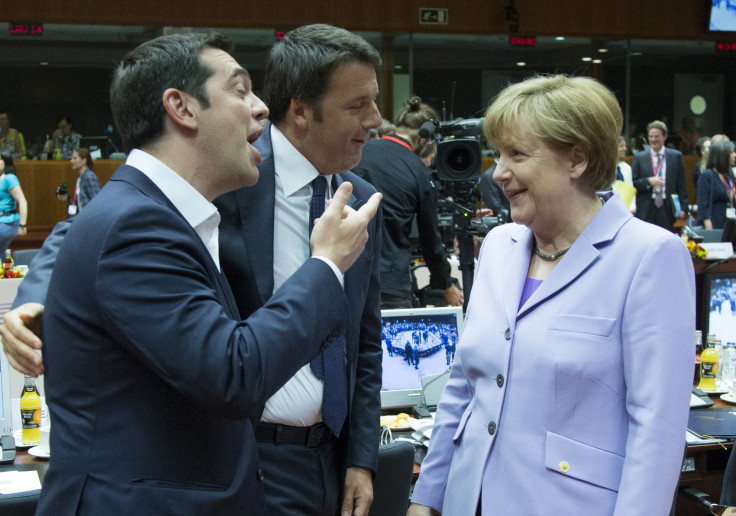Greek debt crisis: European Central Bank 'to maintain funding limit' at current level

The European Central Bank refused to increase emergency credit to Greek banks but has agreed to keep them at current levels.
The ECB also said it could reconsider its decision on credit levels, according to an AP report.
"We continue to work closely with the Bank of Greece and we strongly endorse the commitment of member states in pledging to take action to address the fragilities of euro-area economies," ECB chief Mario Draghi said.
Yannis Stournaras, governor of the Bank of Greece, said the bank would "take all measures necessary to ensure financial stability for Greek citizens in these difficult circumstances".
However, the decision by the decision by the ECB not to provide additional aid may result in Greek banks closing on Monday, according to Robert Peston, the BBC's economics editor.
The Greek finance ministry said the country's financial stability council, the Systemic Risk Board would meet on Sunday (28 June) to discuss the situation.
Greek finance minister Yanis Varoufakis tweeted that the government "opposes the very concept" of capital controls within a monetary union. He also suggested that his country might not pay the money it owes to the IMF on Tuesday (30 June).
Varoufakis refused to reply to a direct question on Sunday on the IMF payment. Rather, he told BBC radio that the ECB should pay the money to the IMF out of the profits it made on Greek bonds in 2014, an idea he called "a very sensible transfer".
"We are owed money by one part of the troika and we owe money to another part of the troika? Why don't they sort themselves out and transfer money from one pocket… to the other?" Varoufakis said.
"We know that we have bent over backwards to accommodate the institutions, the troika [the European Commission, ECB and IMF], our European partners, and they have not come to the party," he added, "they have not met us half way – not even a quarter of the way."
Many, including Varoufakis, believe that German chancellor Angela Merkel is a crucial player in the negotiations.
"The EU leaders must act. And among them she [Merkel], as the representative of the most important country, holds the key in her hand. I hope she uses it," he told Germany's Bild newspaper.
France's Prime Minister Manuel Valls hoped that everything could be done to keep Greece in the eurozone.
"We don't know – none of us – the consequences of an exit from the euro zone, either on the political or economic front. We must do everything so that Greece stays in the eurozone," Valls told France's i-Tele TV.
"But doing everything, that means respecting Greece and democracy, but it's also about respecting European rules. So Greece needs to come back to the negotiating table."
© Copyright IBTimes 2025. All rights reserved.






















